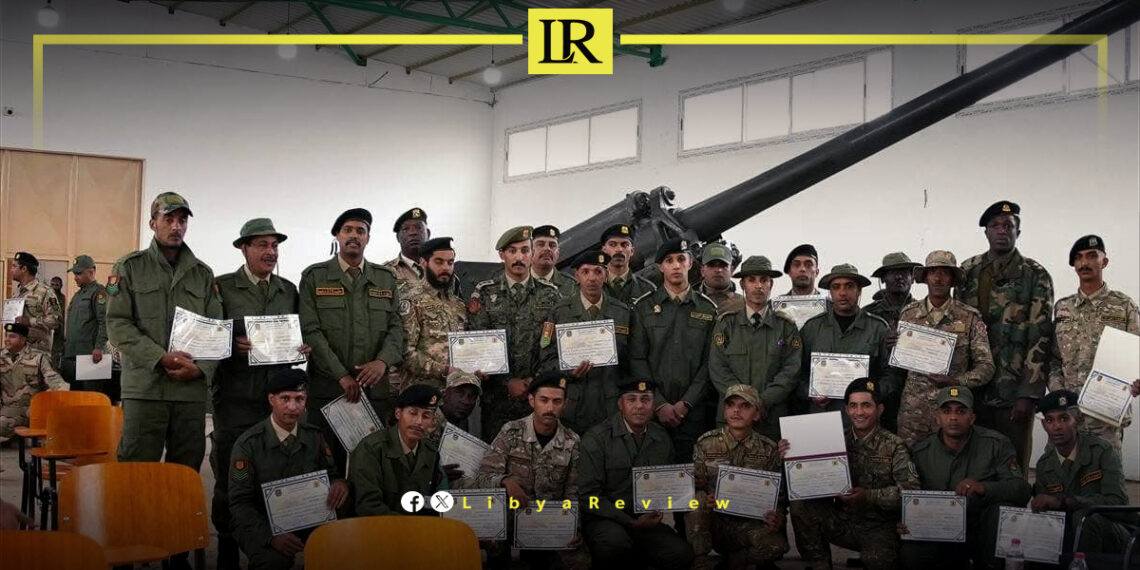As part of ongoing efforts to enhance combat readiness, the fourth training course for 130mm artillery crews and the third course for 122mm artillery crews concluded successfully at the Artillery and Missile School.
The courses saw participation from 53 non-commissioned officers (NCOs) from the 128th Brigade and the 304th Battalion, affiliated with the Land Forces Command, along with additional NCOs from the 166th Brigade.
Organized with the aim of improving military capabilities, the training sessions focused on advancing the expertise of the Armed Forces personnel in artillery and missile systems.
During the closing ceremony, the Director of the Artillery and Missile Administration honored the participants for their dedication and successful completion of the training. This initiative represents a significant step toward enhancing the readiness and combat capabilities of Libya’s Armed Forces.
Libya has been in chaos since a NATO-backed uprising toppled longtime leader Muammar Gaddafi in 2011. The county has for years been split between rival administrations.
Libya’s economy, heavily reliant on oil, has suffered due to the ongoing conflict. The instability has led to fluctuations in oil production and prices, impacting the global oil market and Libya’s economy.
The conflict has led to a significant humanitarian crisis in Libya, with thousands of people killed, and many more displaced. Migrants and refugees using Libya as a transit point to Europe have also faced dire conditions.
The planned elections for December 2021 were delayed due to disagreements over election laws and the eligibility of certain candidates. This delay has raised concerns about the feasibility of a peaceful political transition.
Despite the ceasefire, security remains a significant concern with sporadic fighting and the presence of mercenaries and foreign fighters. The unification of the military and the removal of foreign forces are crucial challenges.


